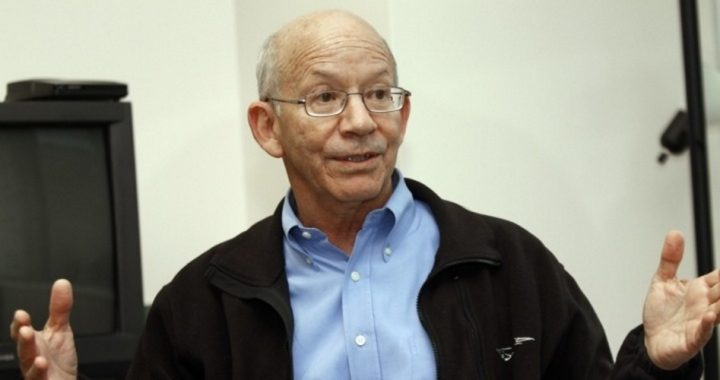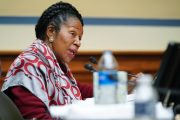
Oregon liberal Congressman Peter DeFazio has long posed as a congressional champion of political campaign “reform,” voting for the McCain-Feingold legislation in 2002 and the “Campaign Finance Disclosure Requirements” bill in 2010 that required clear labeling of all campaign messages. But faced with his first serious reelection effort in more than a decade, the desperate 13-term incumbent Democrat’s official campaign has jettisoned political transparency — and federal law — by putting up billboards that pose as his rival, Access to Energy publisher and Republican nominee Dr. Art Robinson.
“He was putting them up with no disclaimers, or with disclaimers so small no one could read them,” Robinson told The New American. “That, of course, violates the laws.” Indeed, three of the billboards contain no disclosure of the sponsor at all. Robinson has filed a $1 million defamation lawsuit to get the billboards taken down before the election, but DeFazio told local newspapers that he has no intention of taking the billboards down.
The billboards all begin with a picture of Robinson and “Art Robinson says …” followed by a slogan designed to make Robinson appear radical:
“Public schools should be abolished”
“Social Security should be ended through attrition”
“OSU is a liberal socialist stronghold”
The billboards clearly do not accurately reflect Robinson’s political views. For example, Robinson has called for “local control of schools” and an end to federal regulations on education, not outright abolition of all public schools. But DeFazio remains adamant that he will keep the billboards up. “All of them are documented. They are accurate,” DeFazio told the Douglas County News Review. “He said all of those things.”
Robinson’s campaign website notes that “three of the DeFazio billboards have no disclaimer at all. There is nothing whatever on the billboards to indicate their source other than Art Robinson’s name in giant print and a large picture of him.”
Robinson labeled the billboards “identity theft” because many motorists believed the billboards originated from the Robinson campaign rather than the DeFazio campaign that paid for them. “We became alarmed when he started putting up these billboards and even some of our own supporters started thinking that we put them up,” Robinson told The New American. “We did a poll, and we found that 30 percent of the people who saw those billboards thought we put them up and that the policies that were advocated on the billboards were ours. So that’s 30,000 voters that have been deceived.”
Robinson said that even though DeFazio is violating federal law right now, he doesn’t expect any help from the Federal Election Commission with the identity theft. “The FEC is just going to fine him after the election. It won’t do us any good at all.”
For his part, the Oregon Republican is engaging in one of the most extraordinary campaign efforts by distributing 169,000 copies of his book Common Sense in 2012 throughout the district. Robinson estimates that he has already placed the book in the hands of 60 percent of district voters, which may go a long way toward dispelling misconceptions about his views that originate from the deceptive billboards. “That’s one of several ways we’re getting the message out,” Robinson told The New American. “In the race, our part of it’s going very well. We’re happy with the campaign; we’ve done a lot of good things…. We don’t know how it’s coming out.”
The race could go either way. Robinson ran a fairly close campaign in 2010 as a district unknown. The Oregon 4th congressional district covers the Pacific coastal region of Oregon from Albany to the California border, and is about evenly competitive between Republicans and Democrats. The Cook Political Report rates it as a “plus two percent” Democratic district, giving a very slight edge to the Democrat.
Meanwhile, DeFazio is continuing his complaints about campaign finance law and outside money being spent in the district, even as his own campaign relies upon 89 percent of its funding outside of the district. “Right now it’s the Wild West of campaign finance,” DeFazio told the Eugene Weekly newspaper for October 17. “This is an attempt by the wealthiest, most powerful special interests in this country — individuals and major corporations, to buy our country — it’s unprecedented.”
In portraying the race as one between a local congressman and outside forces, DeFazio has the united cover of the local establishment media. The local left-leaning Eugene Weekly stressed that some independent groups had engaged in advertisements in the race, and that Robinson’s campaign is “back at it this election with some help from a few deep-pocketed, out-of-state friends.” Interestingly, the leftist Eugene Weekly failed to mention that 89 percent of DeFazio campaign donations come from outside of the district, mostly from large donors in Washington, DC. The Robinson campaign, however, has raised $1 million from mostly small donors, with a large proportion coming from inside the district.
Photo of Rep. Peter DeFazio (D-Ore.): AP Images



